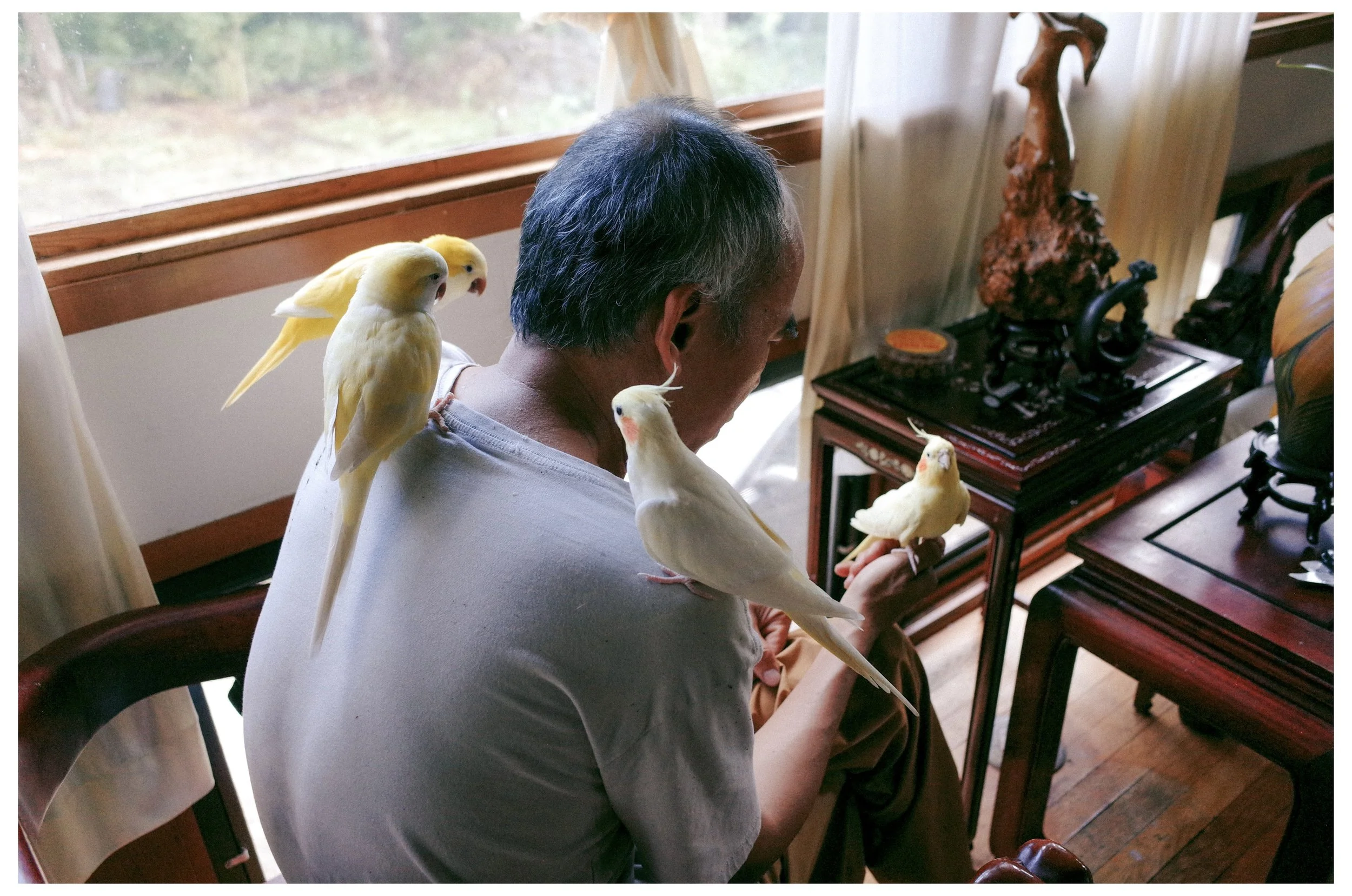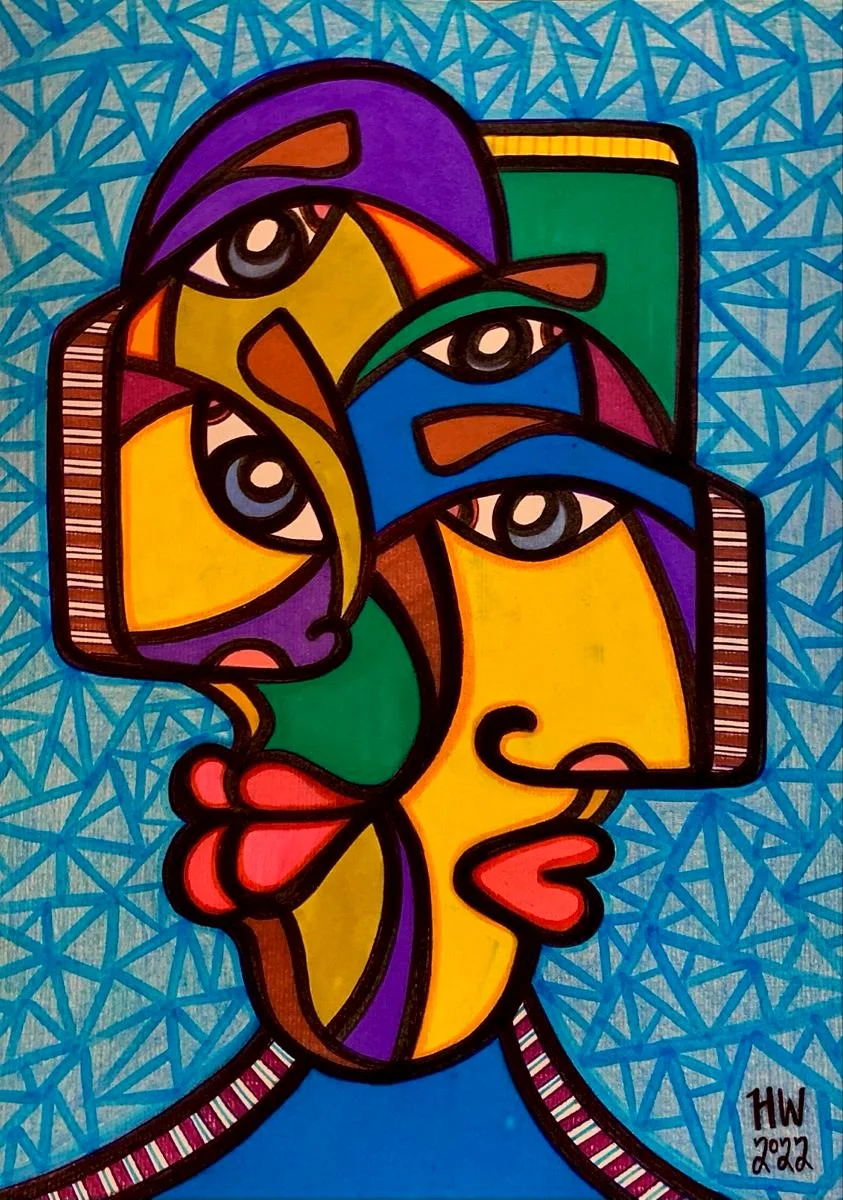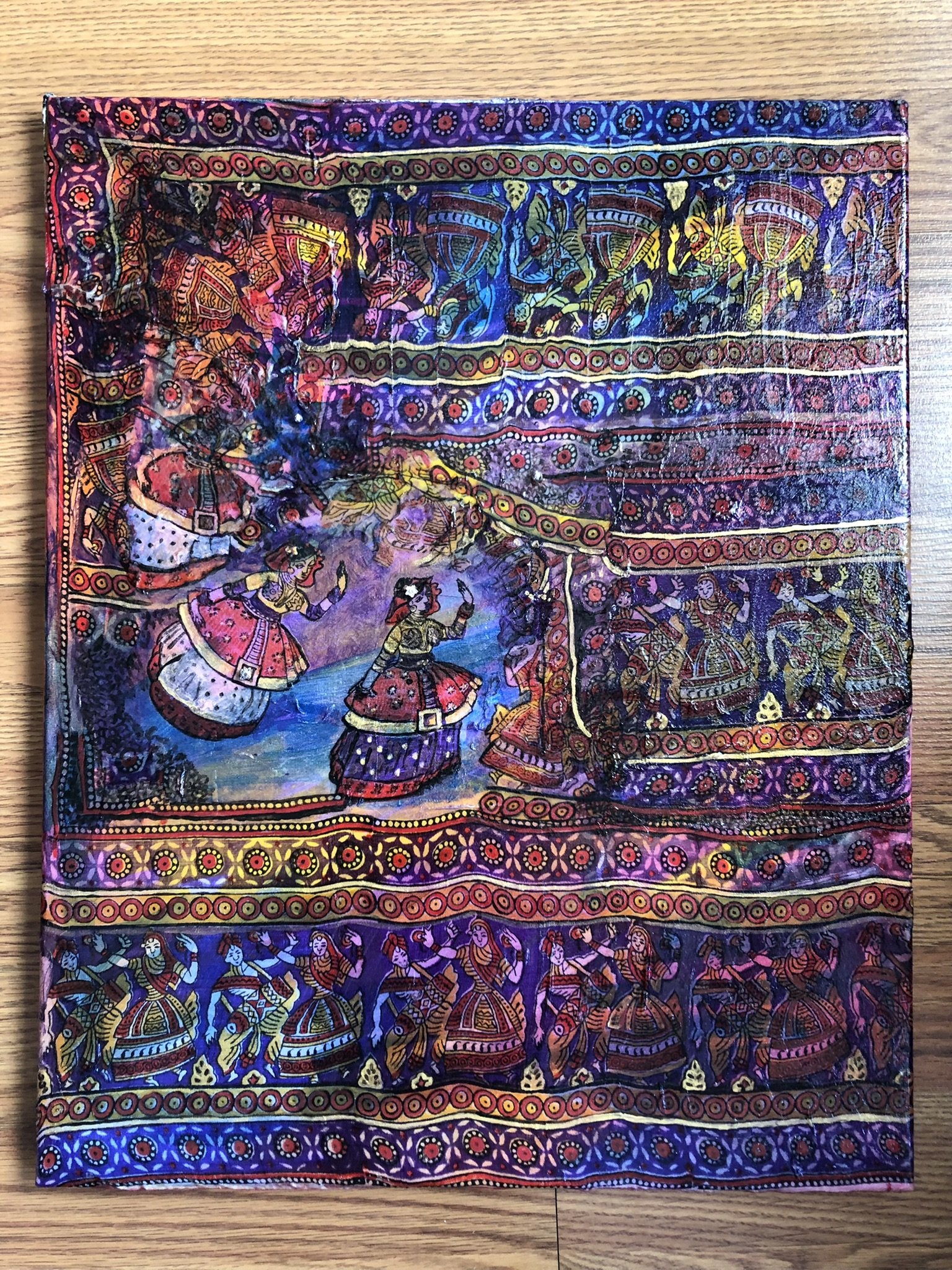Issue 6.2
I Hope You know you don’t go alone (art)
“falling in reverse” by eden is a collage of a song tied together with a humming piano and keening violins, and the last line goes: “I hope you know you don’t go alone.” This sentiment, I believe, is why we create art. Why we bother to spend hours, days, or years on something most people will only behold for a moment or two. Because if we’re able to reach out to just one other person, then it’s enough. We are, after all, social creatures who whither without communication, without understanding. And we crave it so much we plaster our lives with symbols of ourselves: on our walls, our bodies, our plates, our streets, in our homes, in our food. All the little shards we carry like a beacon from a lighthouse hoping to catch a single lost vessel. A way of saying, “hey, me too.”
So behold, even if it’s just for a moment or two, and know you don’t ever go alone.
— Lindsey Walter
Visual Arts Intern
The Unforgettable (Fiction)
When we sent out the call for submissions for this year's special issue, I anticipated authors who would try to capture the spirit of their most powerful memories. I never could have expected the stories we've published, which go above and beyond the prompt. These six stories are as diverse as you can get, but they are united by the idea of collective memory. This theme emerged organically during the selection process as another great surprise. Each talented author takes this concept and boldly experiments with it, redefining what it means for a story to be unforgettable.
— Nicholas Dharmadi
Fiction Intern
Creative Muse: Poets identified with Bipolar Disorder
Through the whirlwind of mental suffering, poets identified with bipolar disorder build the utmost reality of vulnerability and empowerment with their risk-taking creativity, raw honesty, and crafted nuance.
My curation of this special issue takes the perspective of feminist disability theory to include “discourse of body marked as deviant”. Poets identified with bipolar disorders are multiply identified across a spectrum of cultural categories — females, queer, disabled, and racial minorities. Just as these cultural categories are viewed as social constructions, bipolar disorder also needs a politicized discourse away from pathology. Hence, I would love this special issue to forward the minority model toward mental disability rather than the medical model.
The featured poets identified with bipolar disorder root their poems in self-awareness and translate what creative muse means to them as writers, poets, and living beings. The poems show heartfelt and powerful experiences: their reality of bipolar disorder is not merely prescriptions of pills, chemicals within neurons, and difficult terms in medicine. Rather, their reality is located in “prejudicial social attitudes and exclusionary institutions” rather than in bodies assumed as inferior and unfortunate.
While poems in this issue center on the particular experience of mania and depression, my curation philosophy also takes the position of crip theory. Poetry eludes definition. Crip eludes definition as well. Crip, as a way of thinking, positions against able-bodiedness. I’m excited to see the sparks from the collision of poetry and crip (on the spectrum of which locates bipolar disorder). My curation intends to present a flow of crip that decomposes discrete or binary categories and constructs a fluid spectrum from disabled to non-disabled. Poems in this special issue challenge the compulsory able-bodiedness and question the desired state of being within normalcy assumed as fortunate.
The following featured poems, to a certain extent, show common human experiences. These humane and sensitive experiences may not only be inclusive to people diagnosed with bipolar disorder, but may also include people identified with bipolar disorder, and moreover, people identified as non-disabled. I hope poems in this special issue evoke resonance and creative muse in all audiences.
Embrace the rhythms of a beating heart — ups and downs in mania depression. Embrace the possibility that non-disabled can be crip. Embrace the beauty in bipolar and in poetry.
— Wenxin Tang
Emerging Voices Poetry Intern
Note: ORP supports people in marginalized groups. This 2022 poetry special issue, themed Creative Muse, features poets identified with bipolar disorder. Due to the large number of high-quality submissions we have received, I cannot resist but accept multiple poems from one author. I’m thrilled to come across so many beautiful poems on this specific theme. I hope you can share this delight and care of the creative muse.

























